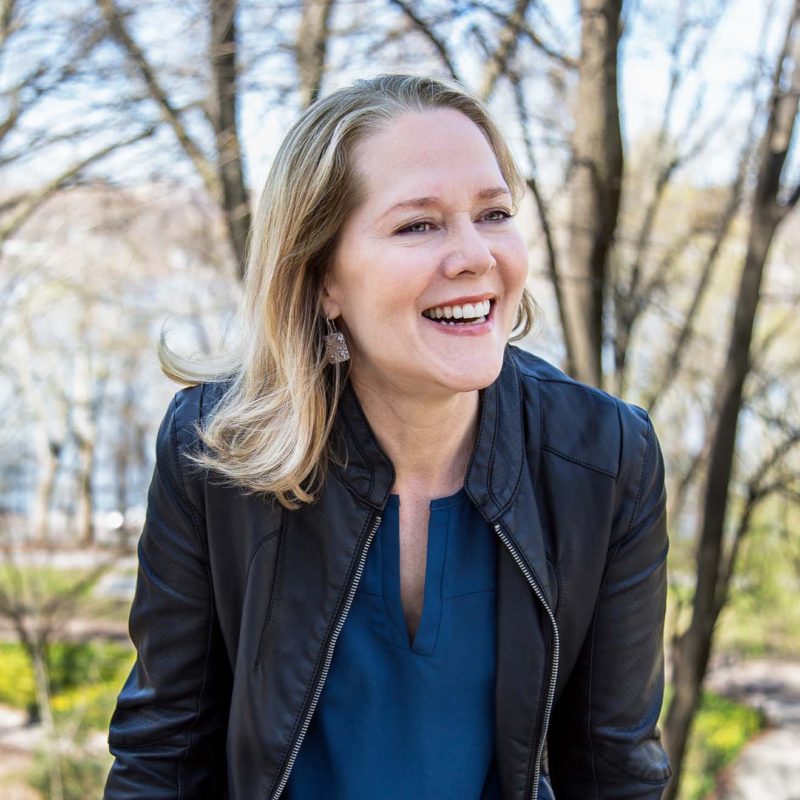An Interview with Rebecca Luker
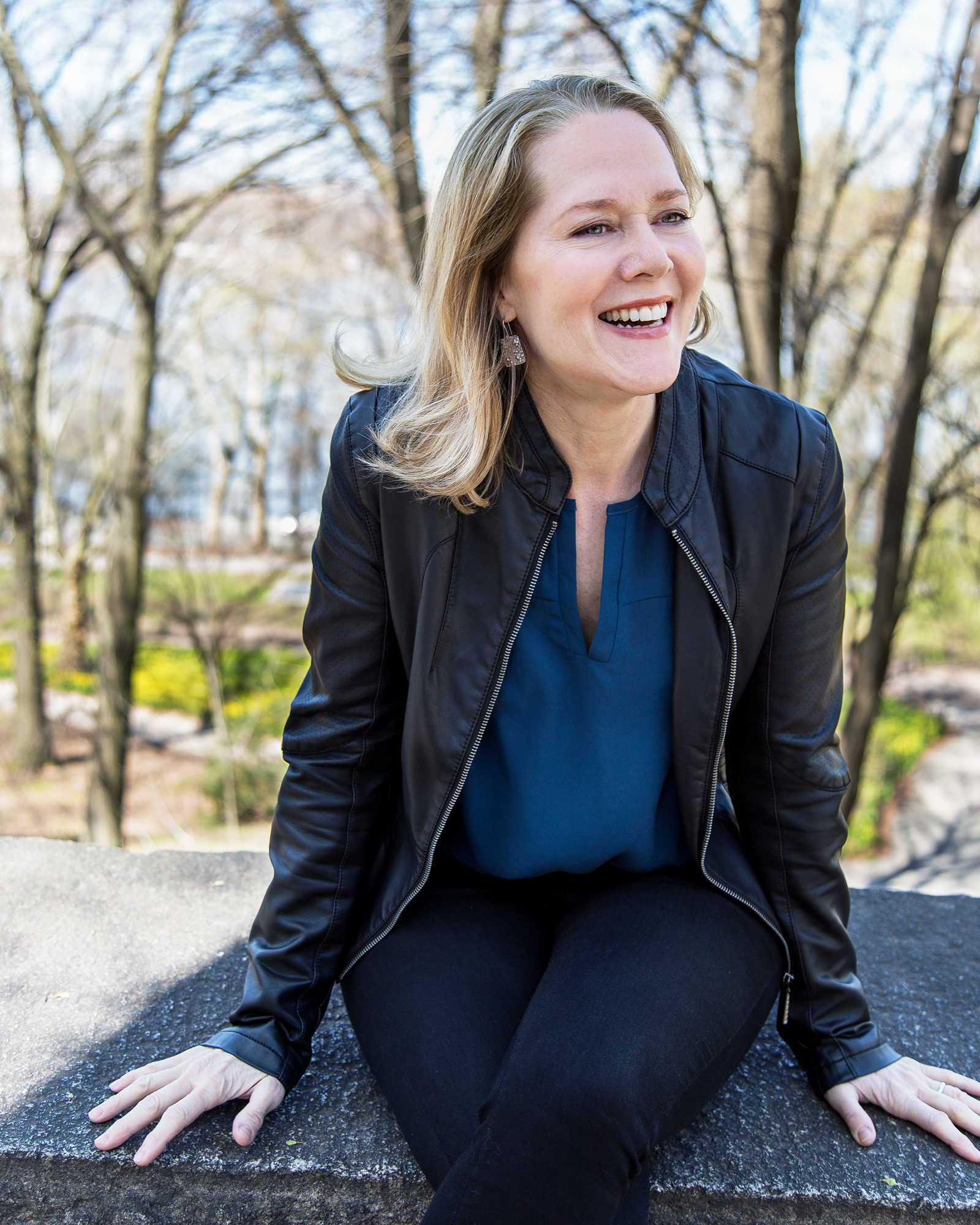
Written by Victoria Myers
Photography by Emma Pratte
May 2nd, 2016
Rebecca Luker likes diners and she likes politics. A few weeks ago, we met her in the former and spent a good deal of time talking about the latter. She’d just begun her run in Fun Home after taking over the role of Helen from Judy Khun, and we talk about how, for the first time in her career, she gets to wear jeans on stage. Her latest role in the women’s history-making musical by Lisa Kron and Jeanine Tesori is a fitting progression for an actress who has a long history of working with women. Her breakout role on Broadway was in The Secret Garden, which boasted an almost all-female creative team. She went on to give highly lauded performances as Magnolia in Show Boat and Marian in The Music Man, both with Susan Stroman as choreographer, and director/choreographer respectively. She recently reteamed with Stroman for Little Dancer at the Kennedy Center. But more than anything else, Rebecca is known for bringing nuance and depth to all of her roles in musical theatre, as well as her sterling soprano. We talked to her about her Fun Home, her process, the progression of her career, and politics.

This is a reductive question, but could you take us through the process of being put into Fun Home?
It’s crazy. This is my third [time replacing in a show]. I went into Nine years ago, Cinderella a couple of years ago, and now this one. The process of going into Fun Home was the quickest ever. We only rehearsed on the stage because rehearsing in a rehearsal room isn’t the same at all, because the show is in the round and uses the voms [a passage for the actors that’s below the seats in the theatre] —it’s a little confusing. So we could only rehearse on Tuesdays, Thursdays, and Fridays. So I had nine days of rehearsal. It was incredibly fast and scary. I did a lot of work on my own at home leading up to the first rehearsal in mid-March. It was just like any other rehearsal process. One of the assistant stage managers, Kelly Stillwell, who’s fantastic, took me through the show and I learned the blocking—I already knew the music—and piece by piece, we did it. Then they call the understudy kids in at the end of the week, and I’d do the opening number with them. It’s this wonderful patter song about cleaning the house up and it’s kind of difficult because it’s a lot of words. My first performance was terrifying in front of an audience. I just thought, “Please, lyric gods, be with me,” and they were. I’d worked really hard on it. I was in the wings before my first performance [reciting lyrics], I was manic, and the cast was laughing at me. Then Sam Gold came in that first day and we sat and talked about the character and the show, and that was wonderful and he helped me a lot. I find that I’m really working out the show in front of the audience every night. I’m trying to work out something new every night and dig deeper every night. I’m having the time of my life over there.
I was going to ask how much it changed once performances started. We did an interview with Ruthie Ann Miles a couple of weeks ago and she talked about how her performance changed every time a new King came in, and it changed in front of an audience because there’s no rehearsal.
Absolutely. I like that though. I like the challenge of it. I even like the pressure of it. And I like doing the show with different people. Last night Michael Cerveris’ understudy Jim Stanek went on, and he’s wonderful too. I like seeing what happens. It forces you to listen as an actor. When you’re not so familiar with a show, you just can’t relax. Also every audience is different, and I like that and how they react. I love it. Being in the round—it’s the first time I’ve ever done that—is incredibly different. Everyone is close to you, everyone is surrounding you. You can’t turn upstage and clear your throat, or hide, or fix something—like fix your fly, which I do all the time since I wear jeans in this show and I’ve never worn jeans in a show in my life—I’m usually in dresses and corsets.
We’re going to come back to that.
I feel like because the audience is so near and around us and sort of participating in it, it’s more of an organic process and it feels amazing.

How do you balance your interpretation of the character and what you want to bring to it as an individual with a cast that’s already made choices about who they think their characters are and what their story is?
Again, all I could do was just see what they were doing. I listen very carefully, and then I learn from them about my character too. It’s so much fun. I take it one scene at a time and try to give her an arc. You have five scenes in this woman’s life and she finally gets to that place at the end where she’s had it, and she’s talking to her college-age daughter. I love the journey she makes from where you think she’s a normal, soft, fuzzy mother, to a woman who is formidable and a woman who has put up with so much. She’s in this crazy dysfunctional marriage, and why is she there? She’s there for lots of reasons: her kids, she’s a good Catholic girl—I wear a cross on my neck in the show. She’s a very busy mother, she’s a teacher, she takes care of three kids, she takes care of her husband. It’s a very complex character. I try to figure her out each night. Why is she there? She loves her husband—or loved him very much at one point. It’s very sad to see what happens to that family. But I love the hopeful ending that Alison finds to live on and live her life.

What’s your acting process like? When you get a script where do you start?
With a musical, I learn the music first. And I just try to make her as truthful as possible. Every scene is, “How would a person say this?” “How would Helen say this?” She can be kind of arch, and I love that because I’m not that way at all. I love being a different person. “Leave me alone. Go away,” she says to her kids at one point, and that’s not me at all. It’s really simple—I just go through the scenes and try to be truthful with the words, and find the normalcy and truth in all the scenes. And do it every night and listen to your fellow actors and you get ideas from them.
Do you find you look for characters who are similar to you, or do you gravitate towards characters who are very different?
I suppose in every character you play as an actor you bring yourself to it. You have to. I don’t really have anybody in mind when I’m playing Helen. I don’t really know anybody like her. I didn’t grow up in a Catholic community, I didn’t grow up in the Northeast. I grew up in the South around a loving, warm mother. So I just try to be someone else. I try not to be Southern. I have a dark wig on, which I love, and I feel different when I’m out there with her wig and her clothes, and this intense, toxic relationship with her husband. There are a couple of scenes early on where he’s so mean to her, and it makes me act a certain way because of that. But Helen and Bruce have this unspoken agreement between them: I’ll stay in this marriage, I’ll take care of the kids, I’ll cook for you, but you better not bring your boyfriends home. It’s so weird. I’m still trying to make sense and figure out their relationship.
Do you find the change in physicality with the wig and clothing really helpful?
It really does help. I’ve never done a show in jeans and tennis shoes before. I’ve done other contemporary plays, but I don’t think I’ve ever worn jeans. I do love having a different color hair, and I wear slightly different makeup, trying to make her different. The transformation helps a lot.
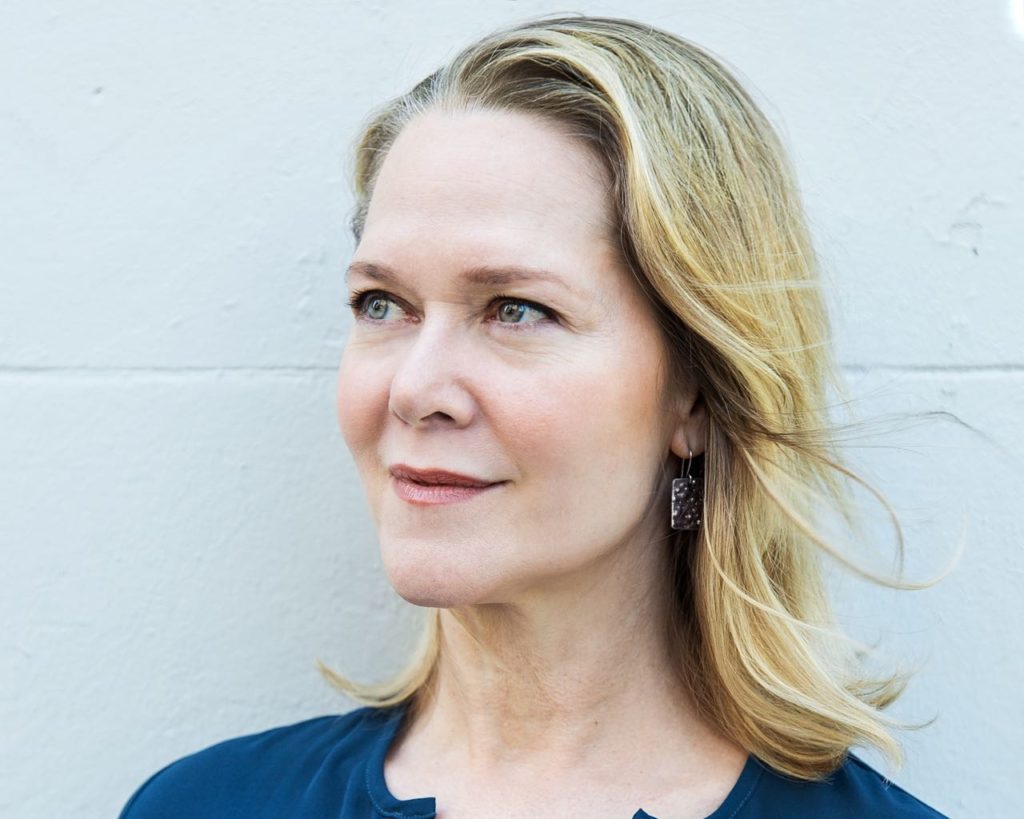

You’ve done a lot of shows. How do you think new work can better be developed?
One thing I think we need to do more of is encouraging writers. There are so many talented writers out there—right out of college, in their 40s and 50s—who are brilliant, but haven’t been given a shot yet. Producers need to get investors to invest in those types of readings. There should be an organization that does just that for these young people, and these people who have been in the trenches for years and written brilliant shows, but because Broadway is so expensive [haven’t gotten big productions]. It starts with workshopping the work, inviting people to come see it, and investing the money. There’s really no other way to do it. I’ve been a part of a lot of concert series, but they don’t ever translate into investors seeing it and putting money into it. I was just working on a show [Little Dancer] that Susan Stroman directed that we did at the Kennedy Center in the fall of 2015, and we’ve done one reading after another of that, hoping to bring it to Broadway. We just did another reading of it a few weeks ago and something might happen, but even for a beautiful show like that, it’s so difficult to get money people to give to it and bring it to that next step. I don’t really know what the answer is, but [maybe] if we’re all committed to supporting these things. And more and more organizations are. And where women are concerned too. Jeanine Tesori is really into that. There’s an organization that she’s involved with called The Ziegfeld Club that supports women and it’s fantastic. And the artist who won this year, Masi Asare, was amazing.

Are there other areas of culture that affect you and your creative process?
Oh yeah, very much. I love beautiful art. Like a Vermeer painting can make me weep. I love Klimt a lot. There’s nobody like him. I love all sorts of music. I grew up singing in church and singing rock music and folk music, before I even knew what an art song was or Broadway. I was a very late bloomer because I was born in Birmingham, Alabama, and we didn’t have a lot of culture that way. So I had to get it from movie musicals and things like that. Then I got a scholarship to my local university and starred in a couple of musicals, and that’s when I got the bug. But I was a really late bloomer. Probably halfway through college is when I realized I wanted to be a performer and not a teacher. And I’m very influenced by world events and politics. I’m very into politics. I think all artist should be, have to be.

What are some of the social issues you’re interested in?
A lot of them. I’m highly into women’s issues. Reproductive rights. LGBT rights. I think what’s happening all over the country with the transgender bathroom issue and giving businesses the right to refuse service… I just can’t believe it’s going on. I think what’s happening now is the last throes of these crazy right wing people trying to get back some control; they see the world changing and the demographics of the country changing so rapidly. I think they’re on their way out, but it’s something we have to fight against. Abortion rights. In 1991 when the Supreme Court was on the verge of overturning Roe v. Wade, I helped co-found a group called Broadway for Choice. We should bring it back. Jean Migdal, a hair person at Phantom, came up to me one day—and I wasn’t into politics—and went, “Would you co-found a group with me called Broadway for Choice?” And I just kind of looked at her. I had no interest at all, and I was in my mid to late twenties, and she was just like, “I have a feeling about you,” and she told me all about it and gave me some articles and I read these things and went, “Okay, I’m in,” and was passionate about it from the beginning. I myself had an abortion in college, and it was way back when we had so many more rights and freedom—I didn’t have to look at a sonogram, I didn’t have to wait three days—it was easy—a Constitutionally protected right that I availed myself of. So I went, “Right, we have to do this.” And I was about 29 or 30 at the time, and we went to Washington and marched. So I’m really passionate about that and I’m so angry about what’s happening. Everything is being chipped away.
In the press it gets buried under other issues, and I think a lot of people—young people in particular—are unaware that Roe v. Wade isn’t a safe decision, and that many states have passed laws to chip away at it. There hasn’t been the same national outcry that there’s been for other issues.
Most of them have gotten away with it and it’s going to bite us on the butt. I admit I’m not as involved in other issues as I should be, like fracking—and I care about that and I care about the environment and regulations—there are so many issues. I’m a dyed in the wool liberal, progressive Democrat. I’m voting for Hillary.
Me too. You should bring back Broadway for Choice.
We should. It’s needed now more than ever. I’m trying to be involved with A is For, which Martha Plimpton started with some friends. I think that’s a great organization. They support politicians and get into the nitty-gritty of legislation all around the country. I love the title too—A is for—[the reference to] Hester Prynne.
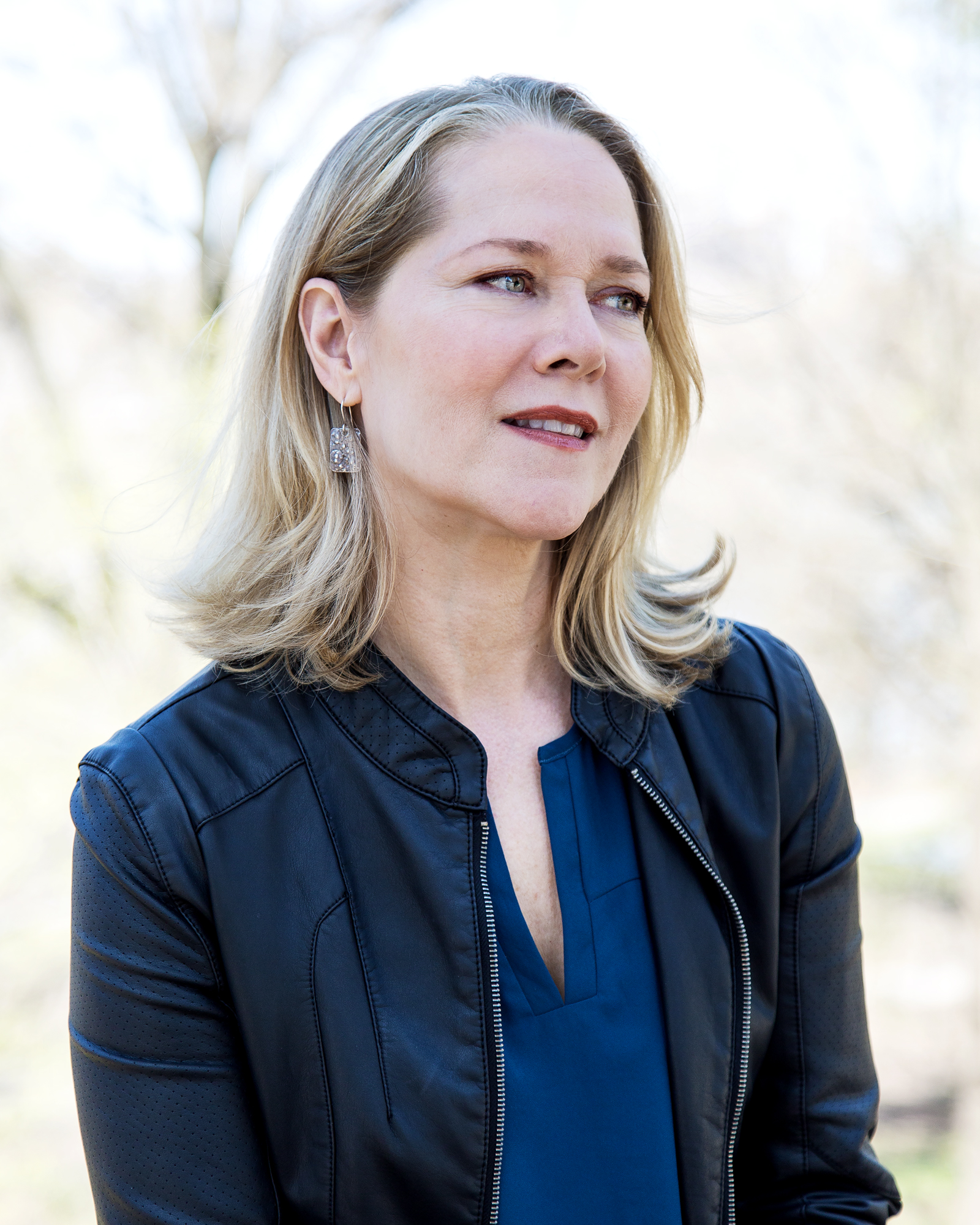

What was the first piece of storytelling that had a major impact on you?
As a kid I loved reading a lot. That probably has shaped who I am as an actress. I read voraciously. When I was younger, I used to read biographies of famous women. I was very affected by Florence Nightingale, Marian Anderson. I was always in the back of the station wagon reading. I couldn’t get enough of these stories about women who accomplished a lot of things.
Do you think you were actively looking for role models?
No, I don’t think at that age. But I was attracted to that sort of thing. I was a very shy kid. If you had told me I was going to become an actress, I would have thought you were crazy. I had stage fright—I’m not sure how I got over that. I loved singing, and I think that got me through.

Your career has been a little unusual, since you’ve worked with a number of women on creative teams from The Secret Garden, to working with Susan Stroman multiple times, and now Fun Home. Do you find that affected you? Especially since normally for people, especially early on in their careers, it’s all men.
My first show was Phantom of the Opera and Maria Björnson was part of the creative team—she did sets and costumes—and the chorographer was a woman. There were a couple of women there, but [it was] very male-centric. And then Secret Garden was my second Broadway show, so I thought this was normal. And I was hoping a lot more of that would happen, and of course, it never really did. But I’ve worked with a number of woman directors like Susan Stroman and Susan Schulman. And The Secret Garden was amazing. It was this nurturing atmosphere. Heidi Landesman, the set designer, would literally bring in a plant everyday. Everything was about gardens and growing and nurturing and mothering. It was an amazing experience.
Was there some surprise that the industry didn’t continue to evolve and there weren’t more female writers and directors getting produced after that?
Yeah, very much so. It’s very disappointing that even in the theatre—we know about the issues in Hollywood, people have been talking about that for years—but in the theatre I would expect more women. But it’s still an old boys network that supports work by men. And I have to say women directors are not soft, they are strong people. In many cases, they are much more strong than a male director. Maybe because they have to be, they’re struggling in this very male-centric atmosphere. But they are fierce—Susan Schulman, Susan Stroman—amazing directors, and they don’t suffer fools. They’re strong and they have opinions and it’s fantastic. Jeanine Tesori and Lisa Kron, very strong and opinionated women. So I don’t know what the answer is. I think women need to band together to keep writing and fighting and promoting each other. And maybe we just have to promote each other until all the male producers go, “Oh okay. There’s some good stuff out there.” I think it’s changing.
Have you had to think about how you present yourself in rehearsal? If you have to say, “No, I don’t think my character would do that”? Do you feel you have to say it with a smile?
I don’t feel that way now. Maybe when I was younger I did. But when I was younger I really didn’t argue back much. I was always willing to try everything, and wanted to be sweet and get along, and I still am, but now I’m more comfortable. I don’t feel like I have to do it in a different way than my male co-stars. And I don’t think I deal differently with a male or female director. I think I see them all the same. I feel comfortable saying, “I’ll try that, but how about this?”

I wanted to ask you about your thoughts on the word ingénue. It’s such a specific musical theatre term that has some baggage to it. And going back to what you were saying about never having done a show in jeans, I know that there’s still that adage that if you’re a woman auditioning for a musical, always wear a dress or skirt, never wear pants.
They’re still saying that huh?
Supposedly.
I used to think that too. And if you’re playing a period role, maybe you should wear a dress. But more and more over the years, I’ve gotten away from that. When I was auditioning for The Music Man in ‘99-ish, they didn’t want to see me for the role of Marian. And I’d been around and done a few Broadway shows, and it was the perfect part for me, I thought. And I went, “This is crazy that they don’t want to see me. What’s happening?” What was happening was they wanted a Hollywood star or a fresh face that no one had ever seen before. And I went, “That’s fine, but I still want to be seen for it. I still think I deserve to be seen for it.” So I got my agent to get me in. And I knew I was going to be walking into a room of people who didn’t really want to see me, but I worked really hard on it and I wore pants and hardly any makeup and I was very relaxed and I ended up getting the part. It doesn’t always work out that way, but I think you should be comfortable. Sometimes I think wearing pants and normal shoes is better, since you can move better. I don’t think there’s any hard and fast rule there. But the word ingénue—that’s interesting you bring that up.
Yes?
I don’t feel like I’ve ever really been an ingénue. I think of ingénue as not the leading lady, and even when I was younger I was more in the leading lady part—I was always old. But there’s not really a male counterpart to that, is there?
It seems sometimes that musical theatre is more into typing in a way that specifically affects women.
Oh I think you’re totally right. We need to get away from that.
There’s the blonde soprano box.
I know, and I struggled with that my whole career. And I did it to myself too. And I get asked this by young actors, and the advice I always have for them is don’t let yourself be boxed into certain types of parts. When you’re young, you should go for every part you can. Try to be different, go for a character part. Along with that though, I’m very proud of my body of work and my history, and I worked hard to achieve that. But if I could go back, I would probably try to do some different roles and not box myself in so much, because it has been difficult getting out of it. But the last ten years, since I left that young leading lady realm, I’ve been doing more character parts and I love it. I think, “Where has this been all my life?” It’s freeing.
The boxing in thing comes up a lot. Also, because I’m obsessed with asking people how it affects them personally in terms of how they view themselves.
Oh, it does. Especially when you’re a young actor. I’m constantly telling them to fight against that. If you’re an actor, you should be able to put on a different persona. And fight to get into those auditions. Tell your agent to tell that casting director, “I’m right for this, please get me in.” You have to really fight for it. And then you have to work hard on it and go in and be good. And little by little, you’ll chip away at that persona that’s been put on you. At the same time, we all are a certain type. I have a certain voice, a certain look, and it’s served me well in certain parts and I’m proud of that. So we have to know what we’re good at while still trying to branch out.
Do you feel like there was a definitive moment in your career where you felt like, “This is who I am?”
Really, right away I knew what my niche was. Christine in Phantom. Lily in The Secret Garden. I love to sing. That’s a huge part of me. It always has been. So I knew from the beginning I could do those parts, and I loved to do them. So I knew I was good at that. But I stayed in that niche for a very long time before I started to come out of it, because I was still able to do those young-ish parts into my forties. And that’s okay. That was just my path. And then I started to get some character stuff and a whole new world opened up.
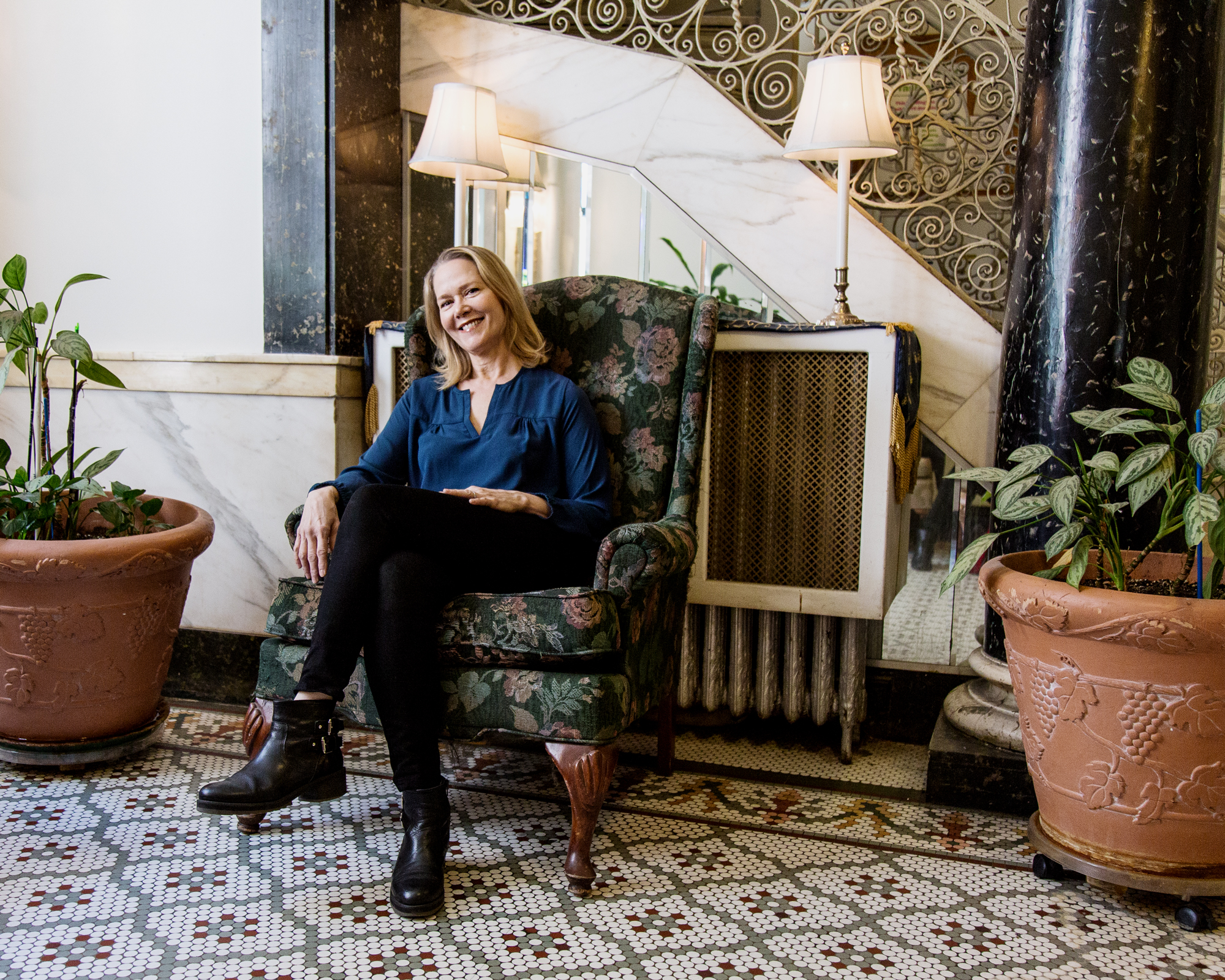

What do you think is something that will improve gender equality in theatre?
Sometimes I do hear that male stars are paid more than female stars. A lot of Hollywood women are fighting back against that. I have no way of knowing what my male co-star is being paid. There is no way to find that out except for your agent to say to the producer, “You have to pay her as much as her co-star.” But actors talk to each other and sometimes say, “What are you making?” It’s a personal question, but if I’m close to my co-star sometimes we’ll put our heads together. I think women just need to be aware and fight back and say, “No, I’m not going to do that part if I’m not paid as much.” And if they want us to work for them, they’ll pay us what we’re worth. Also, we all have to promote stories about women, stories that empower women, and celebrate women. That’s where it should start. Women aren’t just sidekicks and playthings. They’re formidable and make up half the world. That’s what’s so great about Fun Home.
You can follow Rebecca on Twitter: @RebeccaJLuker.

